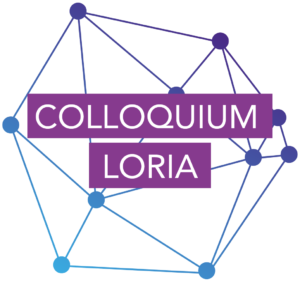[postdoc 2022] Postdoctoral researcher, AI for material discovery
We are looking for candidates with either a background in computer science (specifically AI) and a strong interest in physics/material science, or with a background in material science (specifically ab-initio computations) and an experience with AI techniques.
Applications (CV and cover letter) are to be sent to drhrecrutement-contact@univ-lorraine.fr, sylvie.hilbert@univlorraine.fr and mathieu.d-aquin@univ-lorraine.fr before June 26th 2022.
See the official advert, in french
AI is already becoming a key part of the scientific process, and the goal of the work to be carried out here is to deepen our understanding of its potential contributions and of the methodologies that are required specifically in the field of material discovery. Material discovery consists in finding materials, sometimes not yet synthesized, that have certain characteristics. As in many other scientific discovery processes, the main issue is that the space of possible materials is very large, and a brute force approach is unfeasible: the calculation of most interesting characteristics of materials takes millions of CPU hours. We are therefore interested here in the use of predictive methods to approximate the looked-for physical properties, and therefore generate a set of candidate materials with desirable predicted values for those physical properties. A small subset of the most promising candidates can at this point be verified first through calculation, and then through physical experiments after synthesis.
Such a process, if efficient, could have a very significant impact on material discovery, reducing its cost and increasing its efficacy. Experiments to achieve this have already been conducted using a small database of materials from the same family to try to identify materials with low thermal conductivity. However, this remains limited to a specific approach to prediction, using a small set of features and a small training set of materials.
In this 1 year position, the goal is therefore to build upon those initial experiments, extend them and generalize them, to not only show in a more systematic and broader way the results that can be obtained with AI methods in such processes, but also to establish the foundation for an AI platform, a toolkit, facilitating the interactive use of AI on a wide range of material data and characteristics.
In other words, the successful candidate will work towards the following objectives:
- Compare and contrast AI methods for material prediction, including base machine learning methods, deep learning, few-shot learning, as well as knowledge-centric approaches.
- Set up a feature engineering process, including the analysis of the existing and possible features to be included as predictors
- Set up the foundation for a material discovery AI platform, to facilitate not only the application of AI and data science techniques in material discovery, but also the sharing of data, including intermediary results of calculations.
This 1 year postdoc position will take place within the K team of the LORIA laboratory (k.loria.fr) in strong interaction with members and collaborators of the LEMTA laboratory (lemta.univ-lorraine.fr) involved in ab-initio calculation for material discovery (especially, Laurent Chaput). The K team has a broad range of expertise in artificial intelligence (AI) methods, from knowledge-centric approaches and automated reasoning to data-centric methods and data science methodologies. Our objective is to understand how AI can benefit from being embedded in existing knowledge, and how knowledge can be further discovered and refined through the application of AI. The work here will contribute to an emerging collaboration between members of the K Team and members of LEMTA to explore possible answers to those fundamental questions that can emerge from the application of AI techniques in scientific activities, including material discovery.
Requirements regarding knowledge and skills include:
- At least some basic knowledge on various AI methods in relation to the task
- At least some basic knowledge of chemistry and physics
- Knowledge of data processing / engineering methods (either that apply specifically to materials science, or generally)
- Ability to set up a process for processing data
- Some programming ability, ideally in python
- Experience in the application of AI
- Demonstrated ability to work in a strongly multidisciplinary environment
- Good communicator (in French or English)
- Good presentation skills (in English)
- Good academic writing skills (in English)


